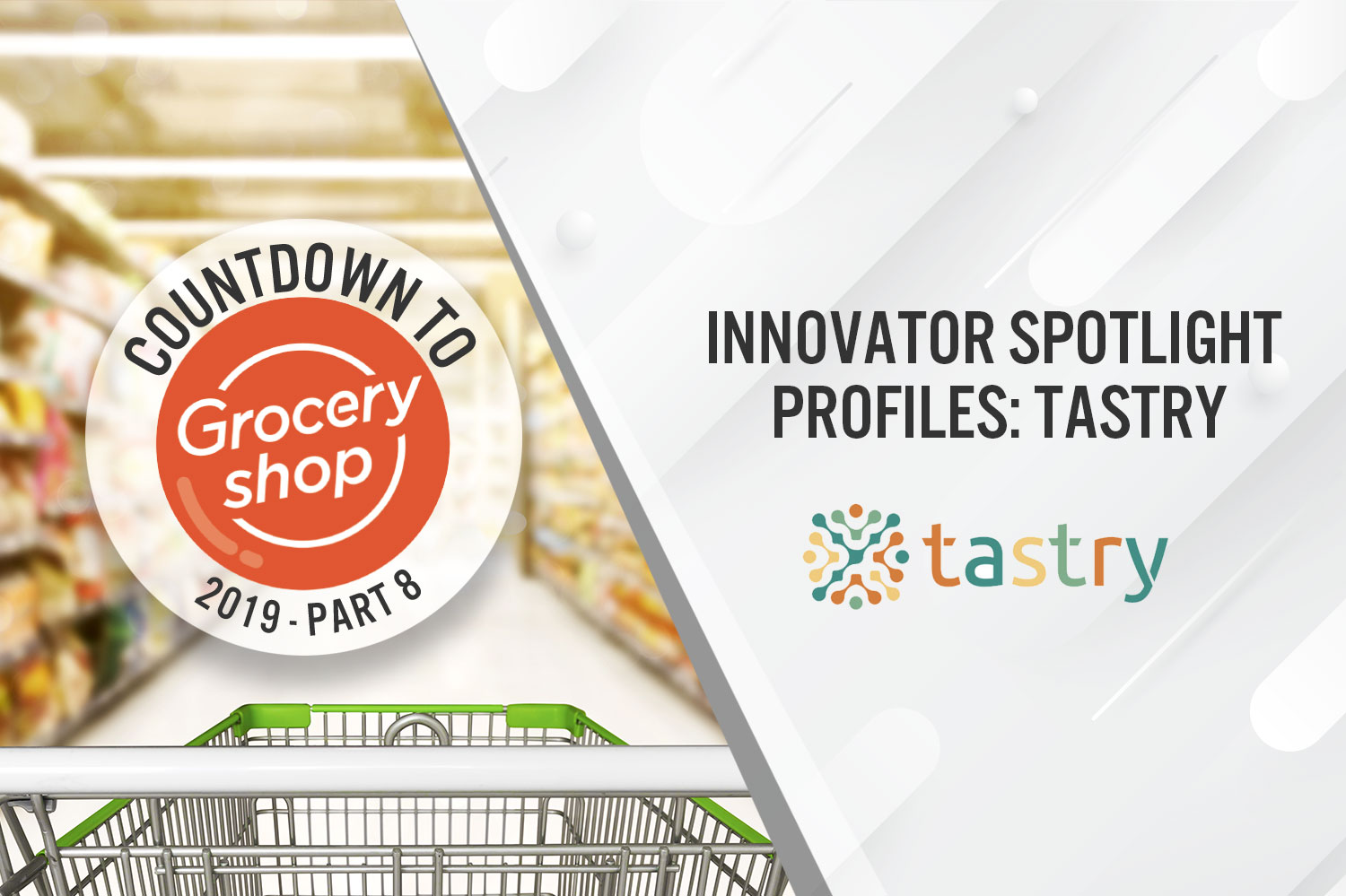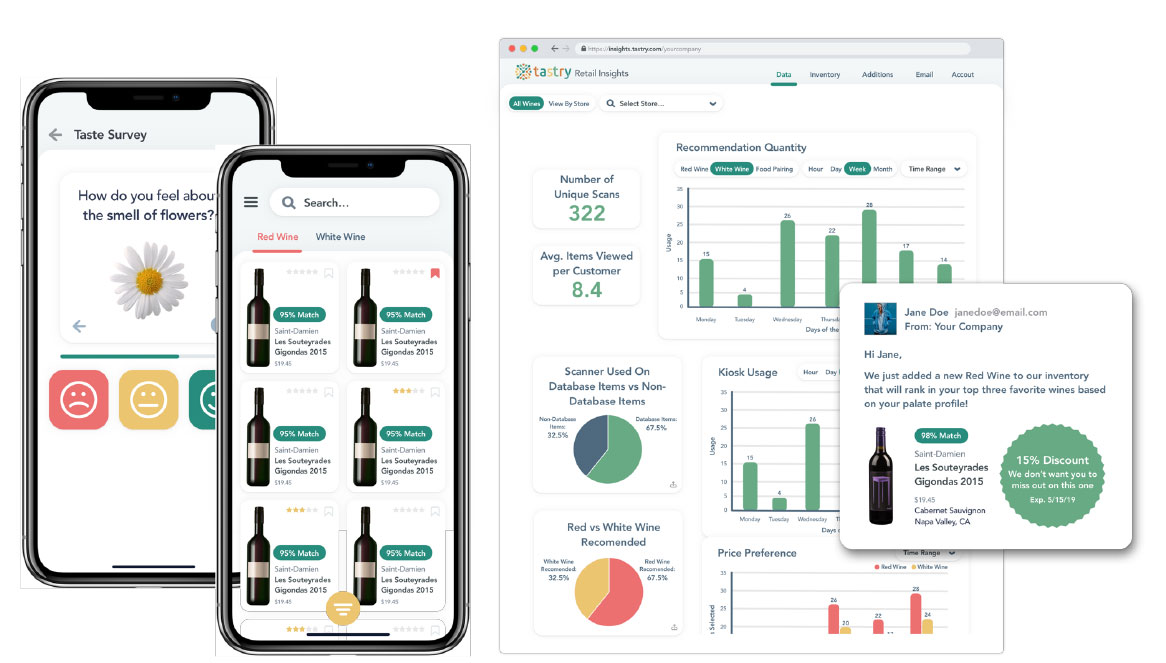
DIpil Das
Groceryshop 2019
The Coresight Research team will be attending and participating in the Groceryshop 2019 conference, which runs September 15-18 in Las Vegas.
The conference is expected to bring together over 3,000 attendees and more than 200 speakers. Discussion topics will include the transformation of the retail industry, including convenience stores, supermarkets and e-commerce, and changes in the production and distribution of CPGs across multiple retail verticals.
The event also covers the rapid shifts in how consumers discover, shop and buy — from the use of new technologies and business models to the latest shopper trends.
Emerging Technology Spotlight Session
This is the second year the Coresight Research team will support Groceryshop’s early-stage technology startup event: On September 15, Coresight Research CEO and Founder Deborah Weinswig will emcee the Emerging Technology Spotlight, which features 20 innovative technology companies presenting their solutions to solve major retail problems.
Groceryshop selected the participating startups based on their solutions, looking for companies that solve some of the most pressing challenges in grocery, e-commerce, food and CPG. All participating startups offer business-to-business (B2B) solutions. Over 130 companies applied to present at the event: From that group, we selected the 20 using a rigorous vetting process.
These are some of the selection criteria:
 Source: Tastry[/caption]
What Problem Does Tastry Solve?
While the typical wine aisle offers hundreds, and sometimes thousands, of choices, the average consumer lacks the experience to choose a bottle of wine that matches his or her palate preference. Retailers have traditionally assisted shoppers by providing expert ratings and descriptions of wines. More modern attempts involve using software-based recommendation engines. However, these sometimes fail to provide accurate matches because they cannot always account for shoppers’ individual taste preferences.
Retailers want to customers to pick a wine they will enjoy to support future sales, and the pairing feature also cross-promotes food items. Tastry’s solution combines analytical chemistry, flavor preferences and machine learning to track consumer preferences and provide more accurate recommendations. Suggestions are filterable by price, wine type, food pairing and other criteria. Tastry’s solution further enhances the shopper experience through food and recipe pairings and retailer-optional coupons.
Headquarters
San Luis Obispo, California.
Funding Stage
Seed.
Management Team
Founder and CEO Katerina Axelsson is a graduate of California Polytechnic State University with a degree in chemistry. Kat noticed that a single batch of wine, sent to two different labels, received drastically different industry scores. It was then that she knew there had to be a more objective way to buy wine for the individual. She saw an opportunity to create an objective scoring system powered by AI but using chemistry to better understand consumer preferences.
Market Potential
The wine market is typically divided into distribution channels that include supermarkets and hypermarkets, specialty stores, convenience stores and e-commerce. According to Zion Market Research, the global wine market was valued at approximately $302.02 billion in 2017 and is expected to grow at a CAGR of around 5.8% to 2023, to reach approximately $423.59 billion. Supermarkets and hypermarkets are expected to dominate the global wine market in the near term.
Company Outlook
Tastry plans to launch an automated food pairing solution which not only pairs wines with types of foods but even specific recipes – and to food inventory in the store. The new solution can even filter for dietary preferences and restrictions. In October 2018, Tastry announced a strategic partnership with Aila Technologies, a leading enterprise retail technology platform, to work on in-aisle touchpoints.
Source: Tastry[/caption]
What Problem Does Tastry Solve?
While the typical wine aisle offers hundreds, and sometimes thousands, of choices, the average consumer lacks the experience to choose a bottle of wine that matches his or her palate preference. Retailers have traditionally assisted shoppers by providing expert ratings and descriptions of wines. More modern attempts involve using software-based recommendation engines. However, these sometimes fail to provide accurate matches because they cannot always account for shoppers’ individual taste preferences.
Retailers want to customers to pick a wine they will enjoy to support future sales, and the pairing feature also cross-promotes food items. Tastry’s solution combines analytical chemistry, flavor preferences and machine learning to track consumer preferences and provide more accurate recommendations. Suggestions are filterable by price, wine type, food pairing and other criteria. Tastry’s solution further enhances the shopper experience through food and recipe pairings and retailer-optional coupons.
Headquarters
San Luis Obispo, California.
Funding Stage
Seed.
Management Team
Founder and CEO Katerina Axelsson is a graduate of California Polytechnic State University with a degree in chemistry. Kat noticed that a single batch of wine, sent to two different labels, received drastically different industry scores. It was then that she knew there had to be a more objective way to buy wine for the individual. She saw an opportunity to create an objective scoring system powered by AI but using chemistry to better understand consumer preferences.
Market Potential
The wine market is typically divided into distribution channels that include supermarkets and hypermarkets, specialty stores, convenience stores and e-commerce. According to Zion Market Research, the global wine market was valued at approximately $302.02 billion in 2017 and is expected to grow at a CAGR of around 5.8% to 2023, to reach approximately $423.59 billion. Supermarkets and hypermarkets are expected to dominate the global wine market in the near term.
Company Outlook
Tastry plans to launch an automated food pairing solution which not only pairs wines with types of foods but even specific recipes – and to food inventory in the store. The new solution can even filter for dietary preferences and restrictions. In October 2018, Tastry announced a strategic partnership with Aila Technologies, a leading enterprise retail technology platform, to work on in-aisle touchpoints.
- Early-stage, defined as pre-series A funding.
- Relevant to the grocery and/or CPG industries.
- B2B solutions (not consumer-facing).
- Scalable (good growth prospects).
- Highly innovative (deep differentiation).
- Important (solving a major industry problem).
- US: 14
- Canada: 2
- Israel: 2
- Australia: 1
- Spain: 1
 Source: Tastry[/caption]
What Problem Does Tastry Solve?
While the typical wine aisle offers hundreds, and sometimes thousands, of choices, the average consumer lacks the experience to choose a bottle of wine that matches his or her palate preference. Retailers have traditionally assisted shoppers by providing expert ratings and descriptions of wines. More modern attempts involve using software-based recommendation engines. However, these sometimes fail to provide accurate matches because they cannot always account for shoppers’ individual taste preferences.
Retailers want to customers to pick a wine they will enjoy to support future sales, and the pairing feature also cross-promotes food items. Tastry’s solution combines analytical chemistry, flavor preferences and machine learning to track consumer preferences and provide more accurate recommendations. Suggestions are filterable by price, wine type, food pairing and other criteria. Tastry’s solution further enhances the shopper experience through food and recipe pairings and retailer-optional coupons.
Headquarters
San Luis Obispo, California.
Funding Stage
Seed.
Management Team
Founder and CEO Katerina Axelsson is a graduate of California Polytechnic State University with a degree in chemistry. Kat noticed that a single batch of wine, sent to two different labels, received drastically different industry scores. It was then that she knew there had to be a more objective way to buy wine for the individual. She saw an opportunity to create an objective scoring system powered by AI but using chemistry to better understand consumer preferences.
Market Potential
The wine market is typically divided into distribution channels that include supermarkets and hypermarkets, specialty stores, convenience stores and e-commerce. According to Zion Market Research, the global wine market was valued at approximately $302.02 billion in 2017 and is expected to grow at a CAGR of around 5.8% to 2023, to reach approximately $423.59 billion. Supermarkets and hypermarkets are expected to dominate the global wine market in the near term.
Company Outlook
Tastry plans to launch an automated food pairing solution which not only pairs wines with types of foods but even specific recipes – and to food inventory in the store. The new solution can even filter for dietary preferences and restrictions. In October 2018, Tastry announced a strategic partnership with Aila Technologies, a leading enterprise retail technology platform, to work on in-aisle touchpoints.
Source: Tastry[/caption]
What Problem Does Tastry Solve?
While the typical wine aisle offers hundreds, and sometimes thousands, of choices, the average consumer lacks the experience to choose a bottle of wine that matches his or her palate preference. Retailers have traditionally assisted shoppers by providing expert ratings and descriptions of wines. More modern attempts involve using software-based recommendation engines. However, these sometimes fail to provide accurate matches because they cannot always account for shoppers’ individual taste preferences.
Retailers want to customers to pick a wine they will enjoy to support future sales, and the pairing feature also cross-promotes food items. Tastry’s solution combines analytical chemistry, flavor preferences and machine learning to track consumer preferences and provide more accurate recommendations. Suggestions are filterable by price, wine type, food pairing and other criteria. Tastry’s solution further enhances the shopper experience through food and recipe pairings and retailer-optional coupons.
Headquarters
San Luis Obispo, California.
Funding Stage
Seed.
Management Team
Founder and CEO Katerina Axelsson is a graduate of California Polytechnic State University with a degree in chemistry. Kat noticed that a single batch of wine, sent to two different labels, received drastically different industry scores. It was then that she knew there had to be a more objective way to buy wine for the individual. She saw an opportunity to create an objective scoring system powered by AI but using chemistry to better understand consumer preferences.
Market Potential
The wine market is typically divided into distribution channels that include supermarkets and hypermarkets, specialty stores, convenience stores and e-commerce. According to Zion Market Research, the global wine market was valued at approximately $302.02 billion in 2017 and is expected to grow at a CAGR of around 5.8% to 2023, to reach approximately $423.59 billion. Supermarkets and hypermarkets are expected to dominate the global wine market in the near term.
Company Outlook
Tastry plans to launch an automated food pairing solution which not only pairs wines with types of foods but even specific recipes – and to food inventory in the store. The new solution can even filter for dietary preferences and restrictions. In October 2018, Tastry announced a strategic partnership with Aila Technologies, a leading enterprise retail technology platform, to work on in-aisle touchpoints.